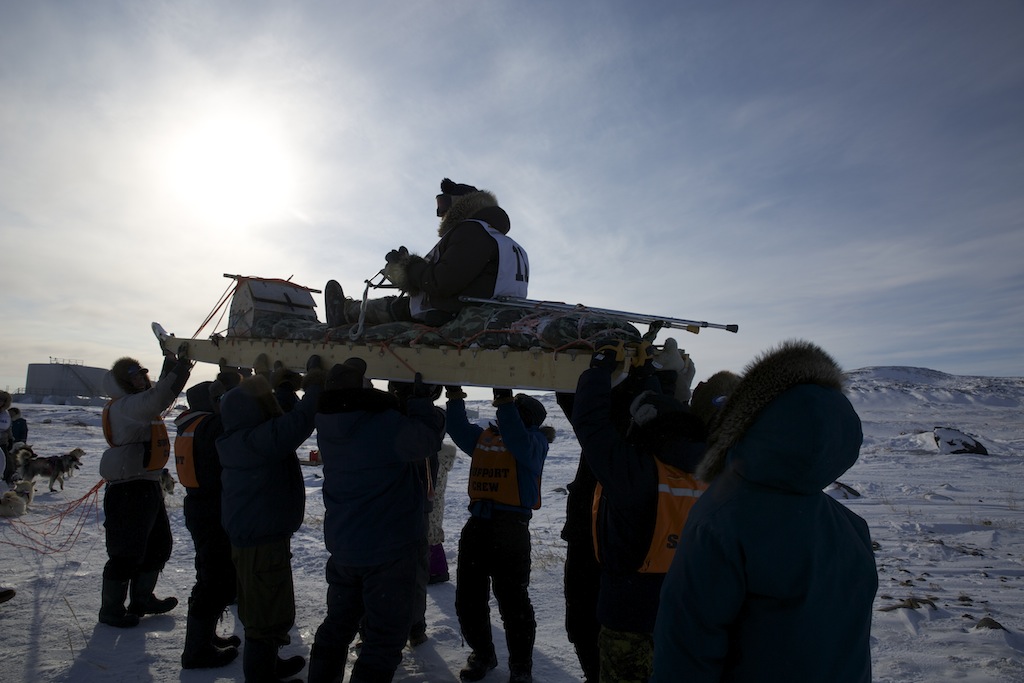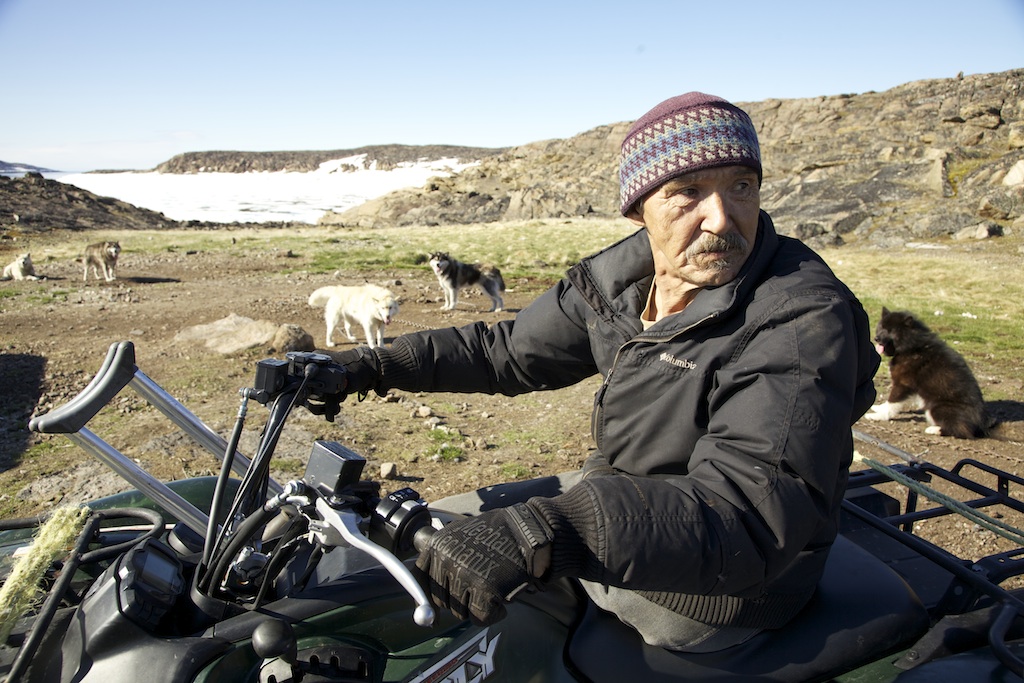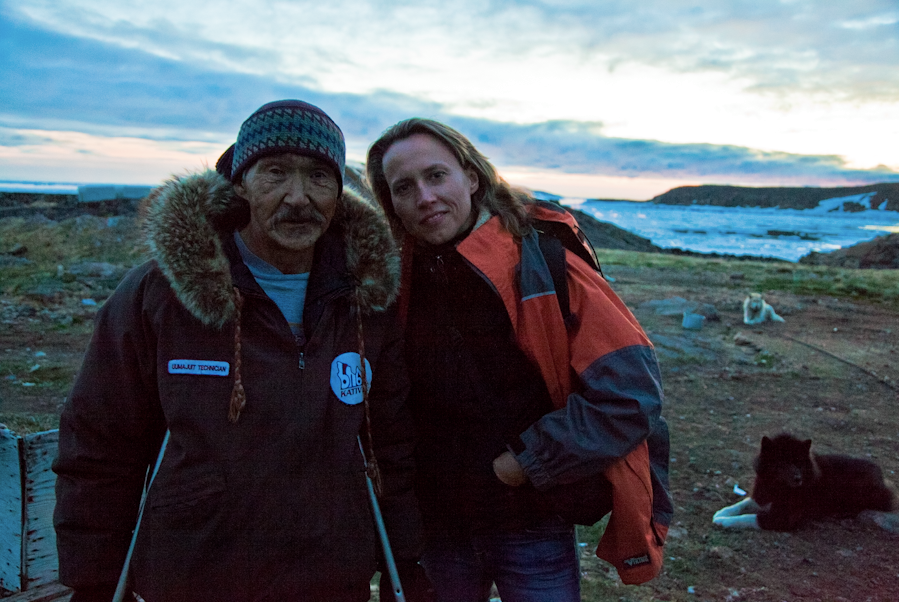A conversation on the frozen sea of Canada’s North is so seared into the memory of filmmaker Laura Rietveld that five years later, she still gets entranced and chilled recalling what she heard.
The Montreal director was in the middle of a dog-sledding trip with musher Harry Okpik. They had paused to have tea and lunch — in fact Laura’s aunt, who was teaching in the Ungava Bay community of Quaqtaq, had fallen off her sled. It was time for a break.
“Harry spoke about dog sledding and his desire to share that passion,” recounted Rietveld. “I remember two things from that afternoon: his desire for a meaningful life wrapped up in dog sledding and the dog slaughter — that was the first time I’d ever heard about it.”
Rietveld said she listened with disbelief when Okpik told her about the history of the slaughter in which hundreds of sled dogs in Nunavik were killed by the RCMP and Quebec police during the 1950s and 1960s. It ripped the heart out of the communities — families could not hunt any more or live their way of life. Many turned to alcohol.
A report prepared by retired Quebec judge Jean-Jacques Croteau found that provincial police officers killed more than 1,000 dogs. The Quebec police replaced the RCMP as the police force in Nunavik in 1960. In 2011, the province of Quebec officially acknowledged its participation in the killings and offered $3 million in compensation.
“I felt shock and embarrassment that I didn’t know this fact. You can’t describe the slaughter in one sentence. I remember taking it in and thinking ‘How is this possible?'”
That was March 2009. Rietveld at the time was recording the story of her aunt for the now-defunct CBC Radio show Outfront. The producers had also asked her to collect stories of other people while up North for a series they were planning. But when she came back, she discovered the show was cancelled and the producers could only pay for the one story — broadcasting the one about her aunt.
She had recorded 60 hours of audio with Okpik, who is now 60 years old. It’s valuable material which will be used in the feature-length documentary Okpik’s Dream.
“He’s lived through a tremendous amount of change,” said Rietveld. “He talked about his youth and the challenges of dog sledding. It’s something that is burned into my memory.”
Oral storytelling
Okpik’s life story spans the time of the dog slaughter to when he attended residential school to an accidental shooting in his 20s which eventually cost him a leg. Since then, Okpik has become a community leader and a well-known musher who competes yearly in Nunavik’s gruelling 600-kilometre Ivakkak race.

The crowd raises Harry’s sled at the end of the 2014 Ivakkak Race. (Photo: Katarina Soukup)
Rietveld spent a few years trying to get the story aired on various other CBC Radio shows but to no avail. Then she met producer Katrina Soukup in 2011 and the pair hit it off.
“It’s important to both of us that it’s Harry’s point of view. Oftentimes, in documentaries about the North, there’s another voice,” points out Rietveld, a first-time filmmaker.
“Harry recounts his life as he goes through his present life. We have some archival footage but there are no re-enactments. It’s oral storytelling based in the present.”
Crowdfunding campaign
The documentary, supported by Air Inuit, was filmed in six trips between September 2012 and June 2014. Supported by various funds, Okpik’s Dream is now seeking $30,000 in completions funds to finish the film. It has an Indiegogo crowdfunding campaign for people to donate.
Rietveld says she’s grateful for the assistance she has already gotten from the people in Nunavik.
“Whether they are putting you up because there are no hotels or someone is lending you their truck because there are no car rentals, it’s a collective effort. We were helped by many people along the way.”
The director says shooting in the North has imbued her with some deep sensibilities.
“Our country is very vast and it’s given me an appreciation for the diversity and the scope and breadth of the world and our country,” she noted.
“I’m humbled. As a southerner, the act of filming this has given me empathy for others and realizing the complexity of the world as whole. You have to be very resourceful and very humble to work in the North.”
The film is in the final stages of post-production which includes sound design, colour correction, music scoring and fine editing.
Okpik’s Dream will hit the festival circuit in 2015 and is expected to be aired on CBC North and the CBC’s documentary channel eventually. Broadcast dates have not been set.

Harry Okpik with his dogs in Quaqtaq, Nunavik. (Photo: Alex Margineanu)
“My first hope is that the people of the North and Nunavik feel that the film is genuine and that it resonates with them,” said a nervous Rietveld. “Generally, a lot of journalists and filmmakers like myself go up there and do stories and aren’t Inuit. The Inuit will often ask, ‘who is narrating this?'”
The director also wants audiences outside of the Inuit community to connect with Harry’s story.
“It transcends culture boundaries. Harry’s story is about what it means to be human, to rise above your circumstances. I want people to be reminded we are not so different from each other.”
Donate to the Indiegogo campaign here.
June Chua is a Toronto-based journalist who regularly writes about the arts for rabble.ca.




